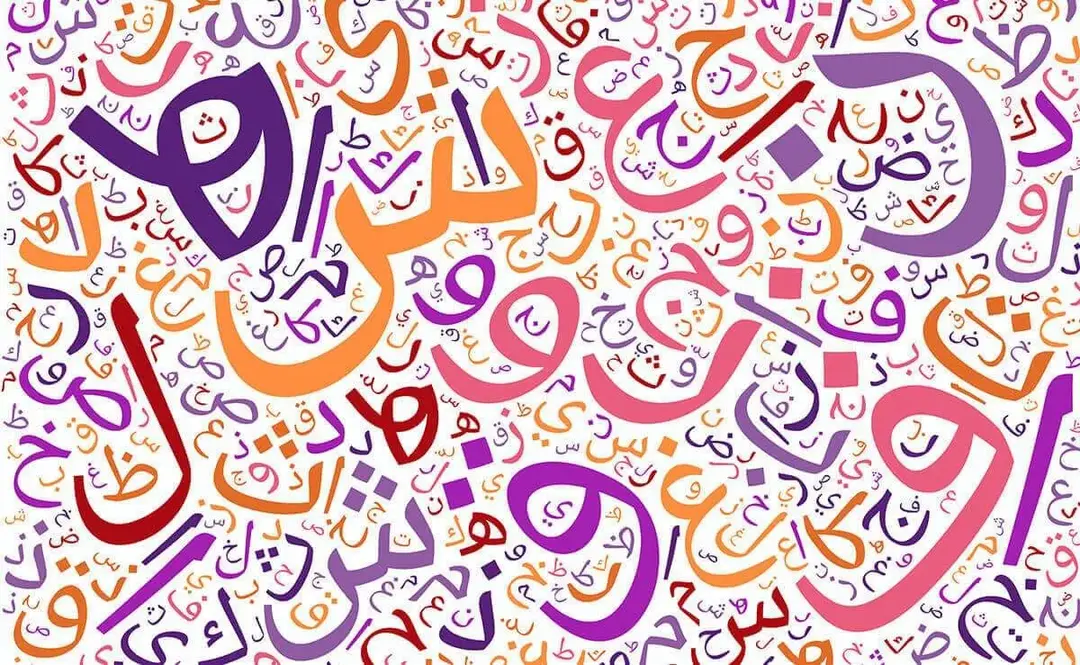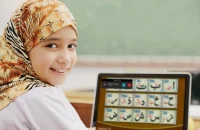Learning Arabic goes beyond grammar mastery, Building a strong vocabulary is crucial, but it can feel overwhelming with thousands of new words, However, vocabulary unlocks culture and enriches your learning journey, If you’re committed to conquering this challenge
While the original speakers did not master every corner of the Arabic vocabulary, don’t worry! With dedication and simple techniques, train your memory to keep it more effectively in less time, which is what Arabic has made easy
Memory Techniques: Mnemonics
Learning new words in any language can be challenging, but for Arabic, where the script and vocabulary may seem unfamiliar, it can feel even tougher, However, there’s a secret weapon to help you conquer new vocabulary: mnemonics using pictures!
Remember that funny acronym you used in school to memorize the planets? The same principle applies here, Mnemonics work by engaging your imagination and creating connections between new Arabic words and things you already know from your native language.
Here’s how it works:
- Choose a word you want to learn, let’s say it’s “كتاب” (kitāb), meaning “book.”
- Think of a picture that represents the word in your native language, for “book,” you might picture a library, a stack of books, or even your favorite novel.
- Now, find a connection between the Arabic word and your chosen picture, maybe “kitāb” sounds like a “key” in your language, and a key can unlock knowledge, just like a book.
- Create a mental image that combines both pictures, imagine a magical key shaped like a book, opening a door to a world of stories.
The more creative and personal your image, the better! By linking the new word to something familiar and engaging, you’ll be surprised how easily it sticks in your memory.
Flashcards
Boost your Arabic vocabulary with flashcards! Flashcards are a versatile learning tool, popular among language learners of all levels. their simplicity and portability make them perfect for fitting study sessions into your busy schedule.
Create flashcards: Write down Arabic sentences that incorporate your target vocabulary words, opt for traditional paper flashcards or digital apps on your smartphone or computer – whichever suits your learning style.
Make the most of your time: Carry your flashcards with you and use spare moments like commutes or waiting times to test your recall, regular practice is key to solidifying your memory of new words.
Learning Apps
Whether you prefer structured study sessions or learning in bite-sized chunks throughout the day, there are many apps and programs to help you boost your Arabic vocabulary without derailing your busy schedule, These tools offer:
- Effective memorization techniques: Games, flashcards, and other engaging activities make learning new words fun and efficient.
- Flexible learning: Learn during your commute, at lunch breaks, or whenever you have a few spare minutes.
- Progress tracking: Monitor your learning journey and celebrate your achievements as you expand your vocabulary.
Practice and repeat
The adage rings true: practice makes perfect when it comes to vocabulary, To truly absorb what you learn, consistent use and repetition are essential, Our brains store memories in various ways, so daily engagement with small doses of information (3-5 words per day) is more effective than cramming, Once learned, try incorporating these words into sentences to solidify their meaning, Over time, this steady practice will build a robust vocabulary arsenal, don’t forget, keeping your brain actively engaged with new words enhances your ability to retain them effectively.
Learn Arabic common words
Learning Arabic common words is a great way to start your journey into this beautiful and fascinating language and Arabic Made Easy, by focusing on the most frequently used words, you can quickly build a strong foundation and start communicating with native speakers.
There are many resources available to help you learn Arabic common words, you can find flashcards, apps, and online courses that can teach you the basics, once you have a good foundation, you can start practicing your new vocabulary by reading Arabic texts, watching Arabic movies and TV shows, and listening to Arabic music.
One of the best ways to learn Arabic common words is to use them in conversation and try to find a native speaker who is willing to practice with you, you can also join an online chat room or forum where you can interact with other learners, That’s what Arabic Made Easy
Learning Arabic common words takes time and effort, but it is worth it, by mastering the basics, you will be well on your way to fluency.
Here are some tips for learning Arabic common words:
- Start with the most common words, there are a few hundred words that make up the majority of spoken and written Arabic, focus on learning these words first.
- Use spaced repetition, spaced repetition is a learning technique that involves reviewing information at increasing intervals, This helps to ensure that you retain the information long-term.
- Use context, when you are learning new words, try to learn them in the context of a sentence or phrase, this will help you to understand how the words are used and to remember them more easily, That’s what Arabic Made Easy.
- Be patient, learning a new language takes time and effort, don’t get discouraged if you don’t see results immediately, Just keep practicing and you will eventually reach your goals.
Arabic words common
Many popular words in Arabic are commonly used by Arabs and some of the, Keywords that can be used include:
- Hello: مرحبا (marhaba)
- Goodbye: مع السلامة (ma’a al-salama)
- Thank you: شكرا (shukran)
- You’re welcome: عفوا (afwan)
- Yes: نعم (na’am)
- No: لا (la)
- Please: من فضلك (min fadlik)
- Excuse me: عذرا (udhra)
- I don’t understand: لا أفهم (la afham)
- Do you speak English?: هل تتحدث الإنجليزية؟ (hal تتحدث al-ʾiinjīliyya?)
- How much is this?: بكم هذا؟ (bikam hāḏā?)
- Where is the bathroom?: أين الحمام؟ (ʾayna al-ḥammām?)
- I’m lost: أنا ضائع (ʾanā ḍāʾiʿ)
- Help!: ساعدني! (saʿidnī!)
learn common Arabic words
Learning common Arabic words is a great way to start learning the language, Here are a few tips:
- Starting with the most common words, there are a few hundred Arabic words that are used very frequently, if you can learn these words, you’ll be able to understand a lot of spoken and written Arabic.
- Use flashcards or a spaced repetition system (SRS), Flashcards and SRS are great ways to memorize new words.
- Practice using the words you learn, The best way to learn new words is to use them in conversation or writing.
- Don’t be afraid to make mistakes, everyone makes mistakes when they’re learning a new language, the important thing is to keep practicing and learning from your mistakes.
Advantages of learning Arabic
There are many advantages to learning Arabic, depending on your interests and goals, Here are some of the most commonly cited benefits:
Communication and Cultural Understanding
- Connect with millions: Arabic is one of the most spoken languages globally, with over 300 million native speakers across 25 countries, learning Arabic opens doors to communicating with a vast and diverse population.
- Navigate the Arab world: Arabic is the official language in many Arab countries, making it invaluable for business, travel, or study in the region, which is what Arabic has made easy
- Unveiling cultural nuances: Language is a gateway to culture, Learning Arabic allows you to delve deeper into Arab traditions, history, literature, and art, fostering a richer understanding and appreciation, That’s what Arabic Made Easy
Religious Significance
- Understanding Islamic texts: Arabic is the original language of the Quran, the central religious text of Islam, Learning Arabic enables a deeper comprehension of its meaning and context, That’s what Arabic Made Easy
- Engaging with Islamic scholarship: Many important Islamic texts and scholarly works are written in Arabic, Proficiency in the language opens doors to exploring these resources firsthand, That’s what Arabic Made Easy
Personal and Professional Development
- Cognitive benefits: Language learning, in general, has been shown to enhance cognitive skills like memory, problem-solving, and critical thinking, Arabic is no exception, That’s what Arabic Made Easy
- Career opportunities: Arabic speakers are in high demand in various fields, including diplomacy, translation, journalism, and international business, proficiency in Arabic can give you a competitive edge in the job market.
- Intellectual challenge: Arabic has a unique writing system, complex grammar, and rich vocabulary, mastering it can be a rewarding intellectual challenge and a source of personal satisfaction, That’s what Arabic Made Easy
Additionally
- Learning Arabic can serve as a stepping stone to other languages: Arabic is related to other Semitic languages like Hebrew and Aramaic, and its influence can be found in languages like Persian, Turkish, and Urdu, Knowing Arabic can make learning these languages easier, That’s what Arabic Made Easy
- Appreciating the beauty of the language: Arabic is renowned for its poetic and literary tradition, learning the language allows you to enjoy its rich literature and appreciate its cultural significance, That’s what Arabic Made Easy
Ultimately, the advantages of learning Arabic depend on your motivations and goals, however, regardless of your reasons, embarking on this journey can be a rewarding experience.
So, you’ve conquered the most common Arabic words, and the language feels less intimidating now, remember, this is just the exciting beginning of your journey! While these words lay a strong foundation, the world of Arabic is vast and brimming with cultural richness.




